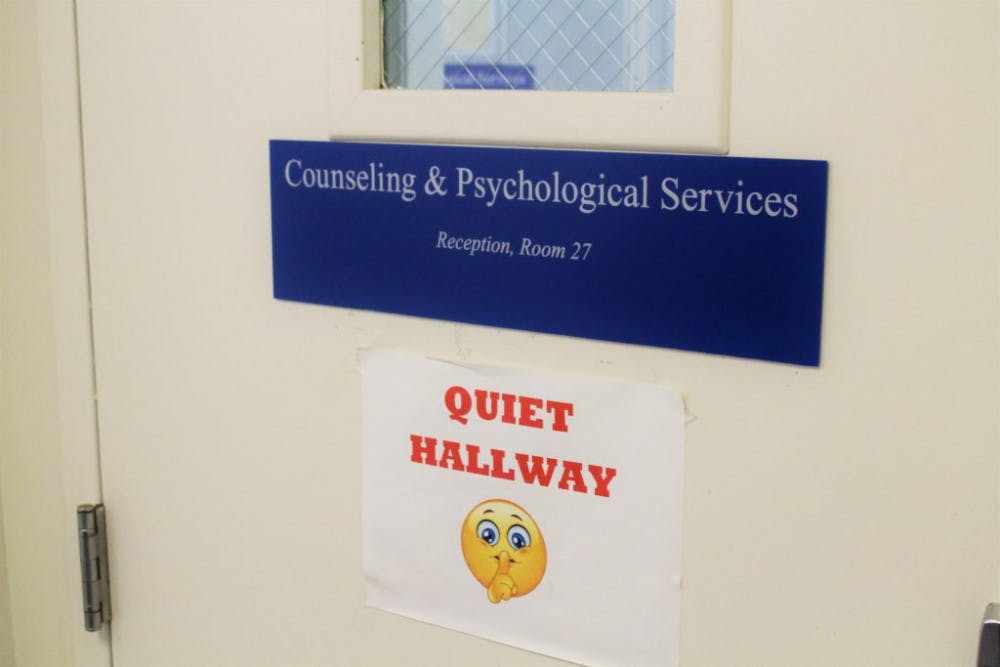Former New Jersey Governor Richard Codey visited the Seton Hall University campus on April 23 to discuss the importance of mental health and wellness within our community.
The former governor and his wife established The Codey Fund for Mental Health. According to their website, the fund’s mission is “to ensure that compassionate, quality mental healthcare is accessible to everyone and that the stigma associated with mental illness is overcome through public awareness and education.”

Codey discussed the importance of having access to mental health resources, creating an inclusive environment and how this is affecting students within New Jersey.
The Codey Fund’s website went on to say that they look to a future where, “mental illness is no longer a source of shame or embarrassment, accurate information with regard to mental illness is widely available, adequate resources are available to promote mental health and people living with mental illness are treated with dignity and respect.
Rishi Shah, a junior majoring in Finance, Management and Philosophy and the SGA president, commented on the event.
Shah said that in his last term, he helped implement the SGA Presidential Cabinet, a group of 15 students who were neither elected nor ad-hoc members of SGA.
“One of the first goals was to look over our mental health resources and to address the concerns around stigma around mental health in general,” Shah said. “Clubs hosted a variety of events throughout late March and April that shed light on mental health in diverse communities.”
Shah went on to say that, “former governor Codey focused his time in office to address mental health during a time where most were called ‘crazy’ or put in a psychiatric ward, many didn’t understand what mental health was and did not address it as a valid concern.”
Nowadays, according to Shah, Governor Codey focuses on stigma surrounding mental health on campuses all over New Jersey. “We recognized his efforts last semester with a Stigma Free Campus sign posted outside of our University Center,” Shah said.
Shah said that in addition to the SGA Presidential cabinet, the SGA, the department of student life and Seton Hall’s government relations helped put this event together in the Chancellor’s suite.
According to Shah, during the event, Codey discussed how he got involved in the campaign to fight stigma and also “spoke about his wife and her struggle with postpartum depression.”
Taina Vasquez, a junior criminal justice major, also commented on the event.
“I thought that this event was really interesting and necessary because the more we talk about mental health the more it reduce the stigma associated with mental illnesses,” Vasquez said. “I enjoyed hearing from the governor’s perspective and how mental health has affected his family, specifically his wife.”
“His main points were related to stigma on campus and the high suicide rates in our young generation,” Shah said. “He really pointed out that students do not have a safe place, somewhere to go to that gives them purpose. Whether this may be a religious organization or a friend/social group.”
Shah went on to share why he thinks it is so important to have a discussion on mental health.
“Too often we witness tragedy or witness our close ones suffer,” Shah.
“Some of these things could have been prevented if outlets to speak, to get help or even understand what one is going through were available.”
Vasquez said that Seton Hall should have more discussions about mental health.
“I think that they should have more discussions about mental health because students need to be aware of the resources that are available to them and with more discussions we can reduce the stigma,” Vasquez said.
“Mental health is a prevalent issue in our society that does not get the attention that it needs in order to raise awareness.”
Vazquez added that it is important that, “our generation understands that it is okay not to be okay, mental health should not hold a negative connotation. Speaking about physical health is acceptable and stigma free this should apply to mental health as well.”
Rhania Kamel can be reached at rhania.kamel@student.shu.edu.





